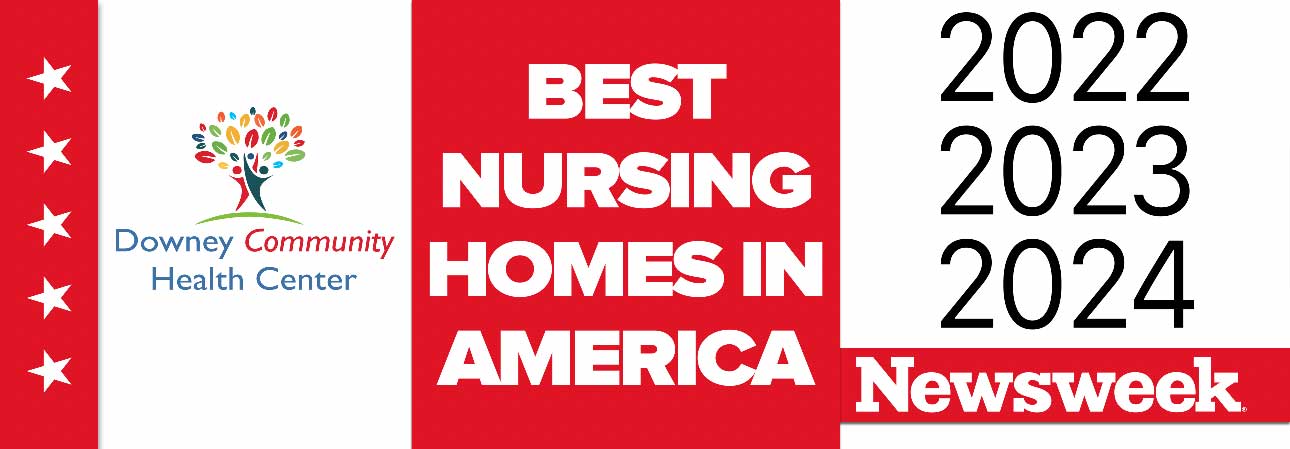Medicare is a federal health insurance program aimed at those aged 65 and older, along with certain younger individuals with disabilities. It consists of several parts, with Medicare Part A covering hospital stays, nursing home care, hospice, and limited home health services. Familiarity with these parts is critical for seniors and families to assess healthcare options and associated costs.
Nursing home care offers comprehensive medical and personal support for individuals with significant health challenges or who need assistance with daily activities. It includes a team of trained professionals who monitor health conditions and provide necessary care, making it suitable for those recovering from surgery or experiencing cognitive decline.
Medicare’s coverage for nursing home care is limited to short-term support. Specifically, Medicare Part A may cover up to 100 days of skilled nursing care after a qualifying hospital stay, provided the patient requires specialized services. Understanding these limitations is essential for families considering nursing home options.
If you’re looking to know how the different parts of Medicare cover nursing homes or if you could benefit from something else such as Medicaid services, this is the article for you. Read until the end to know more!
Types of Nursing Home Care
When it comes to nursing home care, understanding the different types available is crucial for making informed decisions.
There are primarily two categories: Short-Term Care and Long-Term Care. Short-term care is often sought for recovery after surgery, illness, or injury, typically lasting a few weeks to a few months. This type of care focuses on rehabilitation, helping individuals regain their independence.
In contrast, Long-term care is designed for those who require ongoing assistance due to chronic illnesses or disabilities. This may include Skilled Nursing Facilities (SNFs), which provide round-the-clock care from licensed professionals for patients with complex medical needs.
On the other hand, Custodial Care is less intensive, offering help with daily living activities like bathing, dressing, and meal preparation, primarily provided by aides without extensive medical training.
Another important aspect is Hospice Care, which is aimed at providing comfort and support to individuals with terminal illnesses.
In nursing homes, hospice care focuses on enhancing the quality of life in a compassionate environment, ensuring that residents receive the physical and emotional support they need during their final stages. Each type of care plays a vital role in addressing the diverse needs of individuals, ensuring they receive appropriate support throughout their healthcare journey.
Medicare Coverage for Skilled Nursing Facilities (SNFs)
Medicare provides coverage for skilled nursing facilities (SNFs) under certain conditions, specifically for patients who require a higher level of care following a hospital stay. To qualify for Medicare coverage in a SNF, patients must meet several eligibility requirements.
These include having a qualifying hospital stay of at least three consecutive days, being admitted to a Medicare-certified SNF within 30 days of leaving the hospital, and requiring skilled care that can only be provided in a SNF setting.
Eligibility Requirements for SNF Coverage
To be eligible for SNF coverage, patients must demonstrate a need for skilled nursing care or rehabilitation services.
This includes situations such as recovering from surgery, injury, or a medical condition that necessitates professional assistance. It’s important to note that custodial care, which helps with daily activities but does not require skilled nursing, is not covered by Medicare.
Services Covered Under Medicare in SNFs
Medicare covers a range of services in SNFs, including but not limited to:
- Semi-private rooms,
- Meals,
- Skilled nursing care,
- Physical and occupational therapy,
- Speech-language pathology services,
- Medications, and
- Medical supplies.
The aim of these services is to support the recovery and rehabilitation of individuals receiving care in these facilities.
Duration and Limitations of SNF Coverage
While Medicare covers skilled nursing care for an extended period, there are specific limitations. Coverage is generally available for up to 100 days per benefit period, with the first 20 days fully covered.
For days 21 through 100, beneficiaries are responsible for a daily co-payment, which can change annually. After 100 days, Medicare will no longer cover SNF services, and patients will need to explore other payment options or alternative care solutions.
Costs and Co-Payments for SNF Care
The cost of SNF care can vary significantly based on the specific services rendered and the length of stay. For the first 20 days, Medicare covers the full cost, meaning beneficiaries do not incur any out-of-pocket expenses.
However, from days 21 to 100, there is a co-payment amount that beneficiaries must pay, which can be a significant financial consideration. It is advisable for individuals to review their Medicare plans and coverage details to fully understand the financial implications of skilled nursing care.
Medicare Coverage for Long-Term Nursing Home Care
Understanding Medicare’s role in long-term nursing home care is essential for individuals and families preparing for elder care. Medicare generally provides limited coverage for long-term care, primarily focusing on short stays related to rehabilitation or skilled nursing care.
For those requiring ongoing custodial care—assistance with daily activities like bathing, dressing, and eating—Medicare falls short. This is because the program is designed to cover medically necessary services rather than personal assistance, leaving many without necessary financial support as they age.
Long-term care is necessary for individuals with chronic illnesses, disabilities, or cognitive impairments. The need for assistance can arise suddenly after an illness or gradually as age-related conditions develop.
Families often underestimate these needs, yet planning for long-term care is crucial to ensure that individuals receive the appropriate support without depleting their savings.
Why Medicare Does Not Cover Long-Term Custodial Care
One key reason Medicare does not cover long-term custodial care is its focus on acute medical needs rather than custodial services.
Medicare benefits typically cover skilled nursing care on a short-term basis—up to 100 days in certain circumstances—when specific medical criteria are met. Once the need shifts to custodial care, individuals can find themselves without coverage, prompting the need for careful planning and alternative solutions to finance long-term needs.
Alternatives to Medicare for Long-Term Care
For those seeking alternatives to Medicare for long-term care, several options exist. Long-term care insurance can provide financial assistance tailored to cover custodial services.
Additionally, life insurance policies with a long-term care rider can offer a means of funding care while providing benefits to beneficiaries. Moreover, using personal savings or retirement accounts may also supplement the necessary expenses for long-term care.
Medicaid as a Source of Long-Term Care Coverage
Medicaid presents an essential resource for eligible individuals needing long-term care. Unlike Medicare, Medicaid can cover custodial care in nursing homes as well as home and community-based services.
However, eligibility is often determined by income and asset limits, making it vital to understand the program’s requirements and the application process. For many families, Medicaid serves as a critical lifeline, ensuring that those in need can receive the care they deserve without facing financial hardship.
Medicare and Custodial Care
Custodial care refers to non-medical assistance provided to individuals who require help with daily activities such as bathing, dressing, eating, and mobility.
This type of care is often needed by older adults or individuals with disabilities who do not require skilled nursing services but still need support in managing their daily lives.
Differences Between Custodial and Skilled Care
The key distinction between custodial and skilled care lies in the level of medical treatment provided. Skilled care involves medically necessary services that must be performed by licensed healthcare professionals, such as nurses and therapists.
This may include wound care, administering medication, or physical rehabilitation. In contrast, custodial care is primarily focused on assistance with personal care and daily living activities and does not involve medical treatment.
Why Medicare Excludes Custodial Care
Medicare, a federal health insurance program primarily for seniors, does not cover custodial care because it is not deemed medically necessary.
The program is designed to assist with healthcare costs associated with skilled care and medical services, rather than providing support for daily living activities.
As a result, individuals requiring custodial care may need to seek alternative funding options, such as long-term care insurance, Medicaid, or personal savings to cover these expenses.
Medicare Coverage for Hospice Care in Nursing Homes
Medicare covers hospice care for individuals with terminal illnesses, prioritizing comfort over curative treatments. To qualify, patients must be enrolled in Medicare Part A, diagnosed with a terminal condition, and have a life expectancy of six months or less, with a physician’s certification being necessary.
The Medicare hospice benefit includes services like nursing care, pain management, emotional support, and necessary medical supplies, with little to no out-of-pocket costs for patients. It’s important for those in nursing homes to check with their providers to clarify coverage details and any associated expenses.
Medicare Advantage Plans and Nursing Home Care
Medicare Advantage Plans, also known as Part C, are offered by private insurance companies approved by Medicare. These plans provide all the benefits of Original Medicare (Parts A and B) and often include additional services such as vision, dental, and hearing care.
For those requiring nursing home care, these plans can be tailored to meet a variety of needs, providing more flexible coverage options.
Differences in Coverage Compared to Original Medicare
One significant distinction between Medicare Advantage and Original Medicare is the network of providers; Medicare Advantage plans typically require beneficiaries to use a specific network of hospitals and doctors for the best coverage.
Additionally, while Original Medicare covers nursing home care, its limitations on days covered and significant out-of-pocket costs may be less favourable compared to the potentially lower co-pays offered by certain Medicare Advantage plans.
Pros and Cons of Medicare Advantage for Nursing Home Care
The advantages of Medicare Advantage plans for nursing home care can include lower costs, integrated services, and additional benefits like prescription drug coverage.
However, some cons include less flexibility in provider choice and potential limitations on care duration. It’s crucial for beneficiaries to review these factors carefully to understand how they align with their nursing home care needs.
How to Choose a Medicare Advantage Plan for Nursing Home Care
When selecting a Medicare Advantage plan for nursing home care, consider comparing various plans available in your area, and reviewing their coverage specifics, costs, and provider networks.
Additionally, assess any extra benefits that might be relevant to your health needs. Consulting with a Medicare advisor or utilizing online resources can provide further guidance in making an informed choice tailored to individual preferences and care requirements.
Medicare Supplement Plans (Medigap) and Nursing Home Costs
Medicare Supplement Plans, or Medigap, play a crucial role in managing nursing home expenses by bridging the coverage gaps left by Original Medicare. These private insurance policies are designed to cover out-of-pocket costs, including copayments, deductibles, and coinsurance, thus alleviating financial strain when undergoing long-term care.
While Medigap covers skilled nursing facility care—such as coinsurance for days 21-100—it does not extend to custodial care provided in nursing homes. Selecting the appropriate Medigap plan requires careful evaluation of your healthcare needs and potential costs, with the assistance of a licensed insurance professional being beneficial in ensuring adequate coverage.
Financial Considerations Beyond Medicare
Understanding the financial implications of nursing home care is crucial, as Medicare coverage is often limited. It typically covers only a short stay in skilled nursing facilities, leaving families responsible for out-of-pocket expenses related to custodial care and daily living assistance. Private long-term care insurance can help mitigate these costs, but it’s essential to evaluate coverage options carefully.
For those who meet specific income and asset criteria, Medicaid can provide the necessary support for extensive long-term care. Effective financial planning, including consultation with elder care advisors, is vital for preparing for potential nursing home needs as healthcare landscapes evolve.
The Future of Medicare and Nursing Home Care
As the healthcare landscape continues to evolve, the future of Medicare and nursing home care is shaped by several key trends and potential changes in policy.
One significant trend is the increasing focus on value-based care, which prioritizes patient outcomes over the volume of services provided. This shift is prompting nursing homes to improve care quality and reduce hospital readmissions.
Additionally, the aging population is placing immense pressure on Medicare, leading to discussions about expanding coverage options and funding for long-term care services.
Potential changes may include increased support for home and community-based services, allowing seniors to age in place rather than being reliant on institutional care.
As the demographic shifts towards a larger elderly demographic, understanding the implications of these trends will be crucial for policymakers, providers, and families navigating the complexities of care for their loved ones.
Summary
Planning ahead for nursing home care is crucial for ensuring that both you and your loved ones are prepared for potential healthcare needs in the future. By making informed decisions early on, individuals can better understand the types of care available, the associated costs, and how Medicare fits into the equation.
This proactive approach reduces stress and confusion during a critical time, allowing families to focus on what truly matters: the well-being of their loved ones. Furthermore, early planning can help secure access to better quality facilities and services, as well as provide a clearer pathway for managing finances.
Navigating Medicare benefits for nursing home care requires careful attention to eligibility and coverage specifics.
To maximize your benefits, it’s essential to understand that Medicare generally covers skilled nursing care, but only under certain conditions. First, ensure that you meet the requirement of a three-day hospital stay prior to admission to a skilled nursing facility.
Additionally, it’s important to keep meticulous records of medical needs and documentation, as this can support claims for coverage. Consider enrolling in a Medicare Advantage plan that may offer additional benefits, or consult with a financial advisor for strategic planning to cover any out-of-pocket expenses.
Plan ahead to get the best results!






